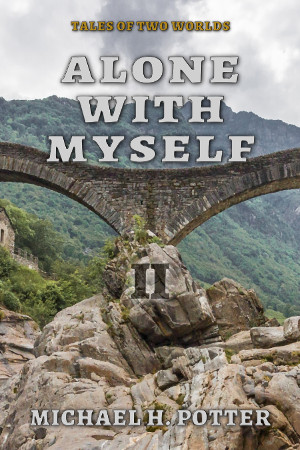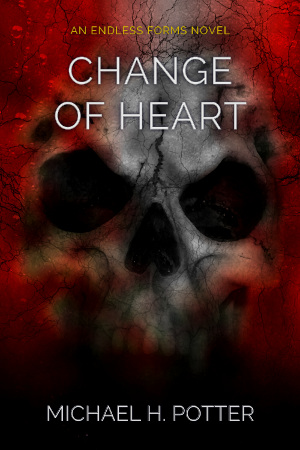I’m a dreamer. I don’t just mean in the figurative sense of being someone who daydreams, who possesses a vivid imagination. No, I have dreams when I sleep, and some of them are very intense, moving, and even profound. Some inspire me. Some change me. While I’m in my continued imprisonment due to the overwrought fears of a belligerent media, I’d like to consider a few of those that have made the most impact on my mind, my outlook, and my life.
Obviously, dreams are subjective to start, and the details aren’t exactly fixed. Here, I try to recall as much as I can; all the dreams I describe in this post are important enough to me that I remembered as much as I could.
The last battle
First is one that, to put it simply, became a book. I had this dream in 2017 (I think), and I didn’t remember much of it. What I could recall, however, stuck with me.
In the dream, I watched as a young woman picked her way through a blasted wasteland. A battlefield, littered with corpses, strewn with the wreckage of artillery. She walked along, looking into the dead eyes of men she might have known, men who could have been her friends, relatives, elders. What she was looking for, I knew immediately: a way to stop this carnage from ever happening again.
The scene she saw was the “last” battle. Not an apocalyptic showdown at the end of the world, but certainly the end of the world she knew. Or possibly the one her parents had known, a world whose death gave her life.
This dream was cinematic in the extreme, and I felt like I had watched the trailer for an epic movie or TV series. I hadn’t, though. This was all in my own head. But it wanted to come out, and so I kept it in the back of my mind for months, until I had the chance to write Shadows Before the Sun, a novel I’m still holding back in hopes of finding a “real” publisher.
The book (the first in what I’m calling the Occupation Trilogy) mostly centers on Lia Maratte, a 20-year-old woman living in a backwater village in a conquered nation. Her late father fought on the losing side a generation ago; her half-brother is of mixed blood. And her people, subjugated by their conquerors, are ripe for revolution.
All that from a single scene that couldn’t have lasted longer than a minute of real time.
The sacrifice
As anyone who has read my writing knows, my cousin passed away in 2014, at the age of 35. He died of complications from the flu, probably the main reason I feared for my life far more in December (when I had the flu) than during the current panic.
While my dreams of him after he was gone were intensely emotional, and they greatly aided me through the grieving process, the one I had the night before seems more appropriate.
Something was destroying civilization as we know it. Meteors, asteroids, or some sort of threat from outer space; I don’t remember the specifics. People were forced to shelter, to hide in bunkers—for a real reason, unlike certain lockdowns. But we found the key. My family, specifically myself, my brother, and two of my cousins…including the one who died the next day. We found a way to stop the threat.
A secret lunar base, built by who knows who, held a weapon capable of ending the calamity. Problem was, nobody knew how to make it work. So, with myself as the lead, we studied it until we could. But it wouldn’t be enough.
Or so we thought.
My cousin stepped in front of the barrel of this weapon, and I watched in horror as he was sucked inside. But then the thing activated destroying whatever it was that had threatened the world. I had to go back to Earth to help lead the recovery, another case where my dreams make me out to be more than I am, while my brother continued to study the weapon. I woke up soon after. Twelve hours later, we got that terrible call. He didn’t die sacrificing himself for the good of humanity, but to a virus we’re now being told is, compared to the one of today, mostly harmless .
Into the unknown
I’ve made no secret that I consider myself an agnostic humanist. Thus, my opinion on the afterlife is that I don’t have an opinion. I’d like to believe that there’s something waiting after the end, especially in times like these, where the end feels so much nearer. But I can’t prove it, and my rational mind wants proof before committing to anything.
Rationality doesn’t exactly exist in dreams. And you know that old saying? “If you die in a dream, you die in real life.” Uh-uh. I’m living proof. (Unless I’m already dead. That might explain why I sometimes feel like I’m trapped in an unending cycle of pain and punishment.)
The first time I died in a dream was…years ago. I can’t be more specific than that. I think it was after 2006. And it was not only a profound experience, but an utterly frightening one.
I don’t remember the exact circumstances of my dream death. They weren’t important in this one, because the focus was on what happened next. I had what can best be described as an out-of-body experience, watching my physical form recede as I rose. Up I went, into the sky, beyond the atmosphere, through space. I looked out as I ascended, and I saw two things: the moon and a space station.
With the certainty of a dream, I knew what would happen. If I could get to that station, the scientists there could put my mind (or spirit or soul or whatever) into a new body, and I’d live again. If I went to the moon instead…well, I didn’t know what waited for me there, just that it was whatever fate awaited anyone who died.
I pushed. I pushed and pushed with my mind, trying with every ounce of mental might to change my trajectory, to aim for the station. And I couldn’t. I couldn’t move an inch from the path I was on. It’s rare that I wake in a cold sweat, but this was one of those times.
Home is where the heart is
I wrote this one down with a date: December 17, 2019. Three months ago, give or take, and much of the memory remains fresh.
Again, I died. This time, I seem to have taken much of the world with me. Awfully selfish of me, I know, but it wasn’t like I was in control. (I’ve never, to my knowledge, had a lucid dream. The best I can do is noticing when I’m dreaming and jumping out.)
The last scenes played out like a movie, much as in “The Last Battle” above. This time, however, it was a better production. I had an orchestral score that waxed and waned following the mood. There was a narrator: me. And the whole thing moved me so much that even recalling it for this post almost brings me to tears.
A woman—possibly Lia, but probably not—walks along a beach that’s slowly drowning under a rising tide. Every few steps, she finds a note from me, like a journal I’ve left one paragraph at a time. She reads them silently, and I read them aloud. I say goodbye to my family. I apologize to all I’ve hurt. In the last, most bizarre, note, I recount receiving a letter from Donald Trump. He told me he was resigning as President, because “it’s all over now anyway.”
After that, the woman walks a little more, now skipping from sandbar to sandbar, because that’s all that left. The music rises to a crescendo of mournful strings, the waves lap at the last remnants of the shore, and I speak this heartbreaking narration:
I lived my life a week at a time, each passing in a blink. Everything around me faded away. My family, my friends, the woman I forgot how to love. My home. All my memories taken like land by rising waters…
I am home. Home is where the heart is.
The last two sentences echo, slowly fading as the scene does. Then comes a fast montage, as if my life flashed before my eyes, but in reverse. And I find myself in some kind of bar or club, jerking awake at a table. A couple of seconds later, I do the same thing in real life, but in my bed instead.
Together forever
I’ve made no secret that I’m in love with a woman. And she’s probably reading this. What never fails to surprise me is that the feeling is mutual, that she loves me in return. When I’m down, I don’t believe I’m worthy of it, or her. When I’m up, I curse the circumstances that keep us physically separated.
I’ve only rarely had dreams of her. I can’t say why; you would think, given how much of a positive influence she has had on my life, she would be more prominent in my subconscious. But apparently not. Still, there are quite a few oblique references I can recall. “The woman I forgot how to love” is one: that dream came at a time when I thought we’d broken up. And I treasure the few cases where we meet in the realm of slumber, none more so than a case from last week.
We got together, to put it simply. We met, hit it off, and realized that we were made for each other. (I’ve felt that way for months already, so that’s no big shock.) Then, the passage of time accelerates. We’re married, we have children, we live together—all the goals I feel coronavirus is taking away from me even as we speak. At some point in the distant future, she dies, and I spend a few years mourning. Ending my time in this world alone, the same as how I began. And then I die.
I don’t subscribe to the fanciful notion of heaven so popular in literature. The whole “we live on clouds and play harps all day” thing just doesn’t resonate with me. And that’s not what I got here. Instead, I was told my soul would be going to “the end of the universe.” A very nebulous term, to be sure, but that’s what happened. My soul appeared to my mind’s eye as a ball of light, glowing, pulsating. When I arrived at this place beyond places, I saw others just like that. Thousands of them. Some I knew, most I’d never met before.
And then I found her.
I intuitively knew it was my love, despite our lack of physical form. I went to her, and the lights that represented us merged. At that moment, I felt a surge of emotion, of pure love, unlike anything I’ve ever known. We had become one, in a way impossible on this mortal coil, and we would stay that way forever. It was beautiful, it was glorious, and it was…comforting. I described it to her as a spiritual experience, and I simply can’t think of a better term.
It didn’t give me faith in the divine. It didn’t restore my faith in humanity, which has taken a beating in the past month. But this dream did let me believe that, if I don’t give up, we can make it. As I write this, it’s one of the only things keeping me going. I want to make this dream come true more than I’ve ever wanted anything in my life.
I just wish the world would give me the chance.

